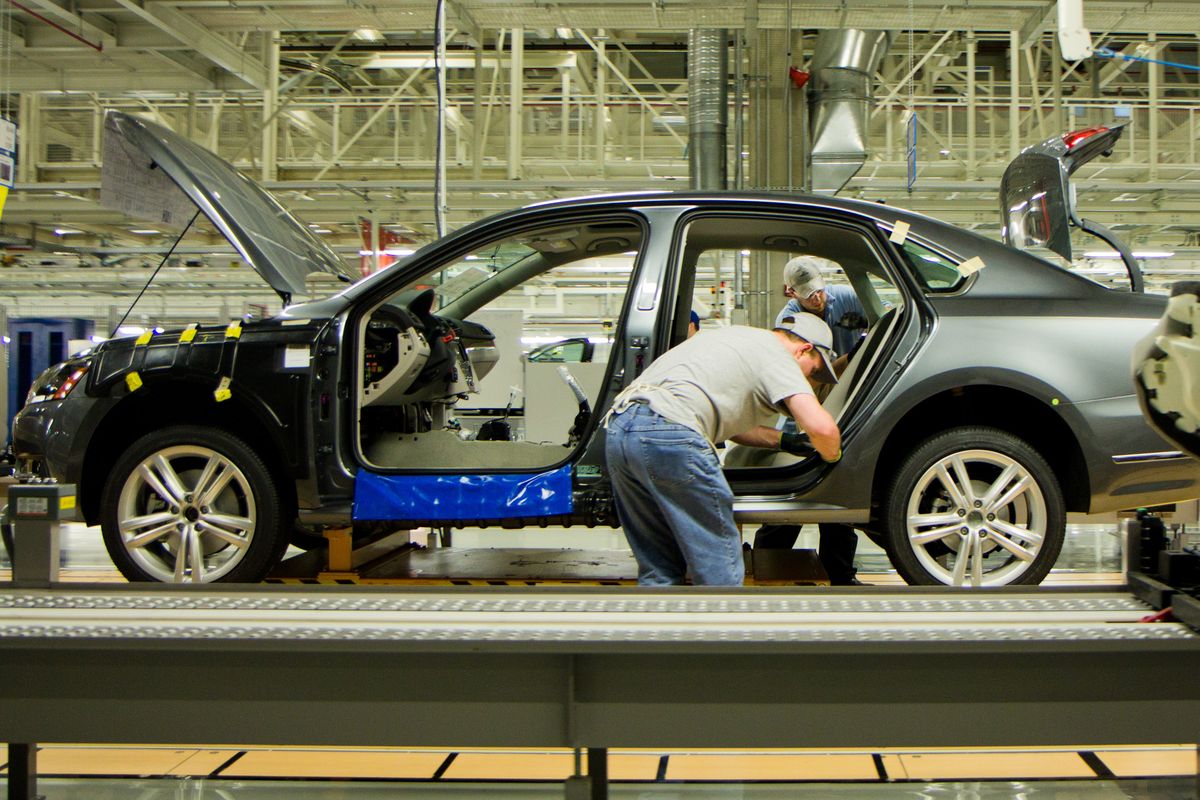U.S. plant a model for VW’s expansion
Jobs, capacity grow as Chattanooga operation hums

NASHVILLE, Tenn. – With a year of operation on the books, Volkswagen’s facility in Chattanooga is boosting employment and capacity to meet demand, moving up plans to export the vehicle to Asia and becoming a blueprint for the German automaker’s future plants.
Frank Fischer, CEO and chairman of the Tennessee plant, said in an interview with the Associated Press this week that running the sprawling facility on the site of a former ammunition plant has had its share of challenges, but the overall experience has been “fantastic.”
“If you have a new product in a new factory with new equipment, new suppliers and a completely new team and new processes, every day you have something new crop up,” Fischer said. “But we planned for much of this in advance, and it helped us to be prepared for any surprises.”
Fischer’s time as head of VW’s Chattanooga plant represents his third extended stint in the United States after earning his MBA at the University of Washington and spending a semester at Michigan State as an undergraduate.
Fischer, 50, has been employed by Volkswagen AG for 18 years, working the company’s plants in Braunschweig, Emden and Wolfsburg. He also spent time as an assistant to the VW board and on an exchange program with Toyota.
The Chattanooga plant’s first Passat sedan rolled off the line last April and the plant produced nearly 23,000 vehicles through the end of the year – a number it has already surpassed through the first quarter of this year.
“We all consider the project to be a success – it’s been a perfect mix, a perfect marriage,” Fischer said.
The company has been careful from the start to avoid the pitfalls that plagued Volkswagen’s last attempt to build vehicles in the United States, which began in 1976 and ended 11 years later.
Fischer said much of the success of the Chattanooga facility comes from the design of the facility that was built from scratch and subject to heavy debate among company officials.
“It was a very interesting process internally, because when the building chief came to me to show me the layout, I said, ‘No way,’ ” Fischer said. “We made some heavy modifications.”
The successful launch of the U.S. operations has led the facility to become a blueprint for four new VW plants under construction in China, Fischer said. The plant has also fostered a domestic supply chain and kept strong ties with VW headquarters in Germany.
“There are a whole series of very important factors that we have implemented that have made the work much easier this time around,” he said.
The company had first planned to spend more time consolidating sales in the North American market before starting exports, but that timetable was accelerated and the U.S.-made Passat is now headed to Mexico, Canada, South Korea and the Middle East.
Volkswagen subsidiary Audi announced this week that it plans to open a new plant in Mexico, dashing hopes in Tennessee that the Chattanooga facility might be chosen for an expansion.
Fischer insists that regardless of Audi’s plans, the Chattanooga plant will remain in the hunt for producing another model. Fischer said the corporate culture at Volkswagen promotes competition among its existing plants.